2025 Class of MGB-SIAM Early Career Fellows
SIAM is excited to announce the 2025 Class of MGB-SIAM Early Career Fellows. These accomplished early career professionals were chosen based on their achievements; active support of diversity, equity, and inclusion in their communities; and dedication to industrial and applied mathematics, computational science, and data science.
The MGB-SIAM Early Career Fellowship is a collaborative initiative by Mathematically Gifted & Black (MGB) and SIAM, aiming to foster prolonged engagement of fellows within SIAM and ensure their continued success in the broader applied mathematics and computational sciences community. This program recognizes the achievements of early career applied mathematicians — with a particular focus on those from racial and ethnic groups historically excluded from the mathematical sciences in the United States — and provides professional activities and career development. The 2025 fellows were chosen by a selection committee consisting of the SIAM Vice President for Equity, Diversity, and Inclusion; MGB representatives; and SIAM members.
SIAM extends heartfelt congratulations to these eight members of the community for their well-deserved recognition as the 2025 Class of MGB-SIAM Early Career Fellows. Read more about our newest fellows.
- Rafael Ceja Ayala, Arizona State University
- Dewayne A. Dixon, Hampton University
- Kwassi Joseph Dzahini, Argonne National Laboratory
- Maurice S. Fabien, University of Wisconsin-Madison
- Nkechi Nnadi, Michigan State University
- Arnaldo Rodriguez-Gonzalez, State University of New York at Buffalo
- María Isabel Sánchez Muñiz, City College of New York
- Sara Shashaani, North Carolina State University
Dr. Rafael Ceja Ayala, Arizona State University
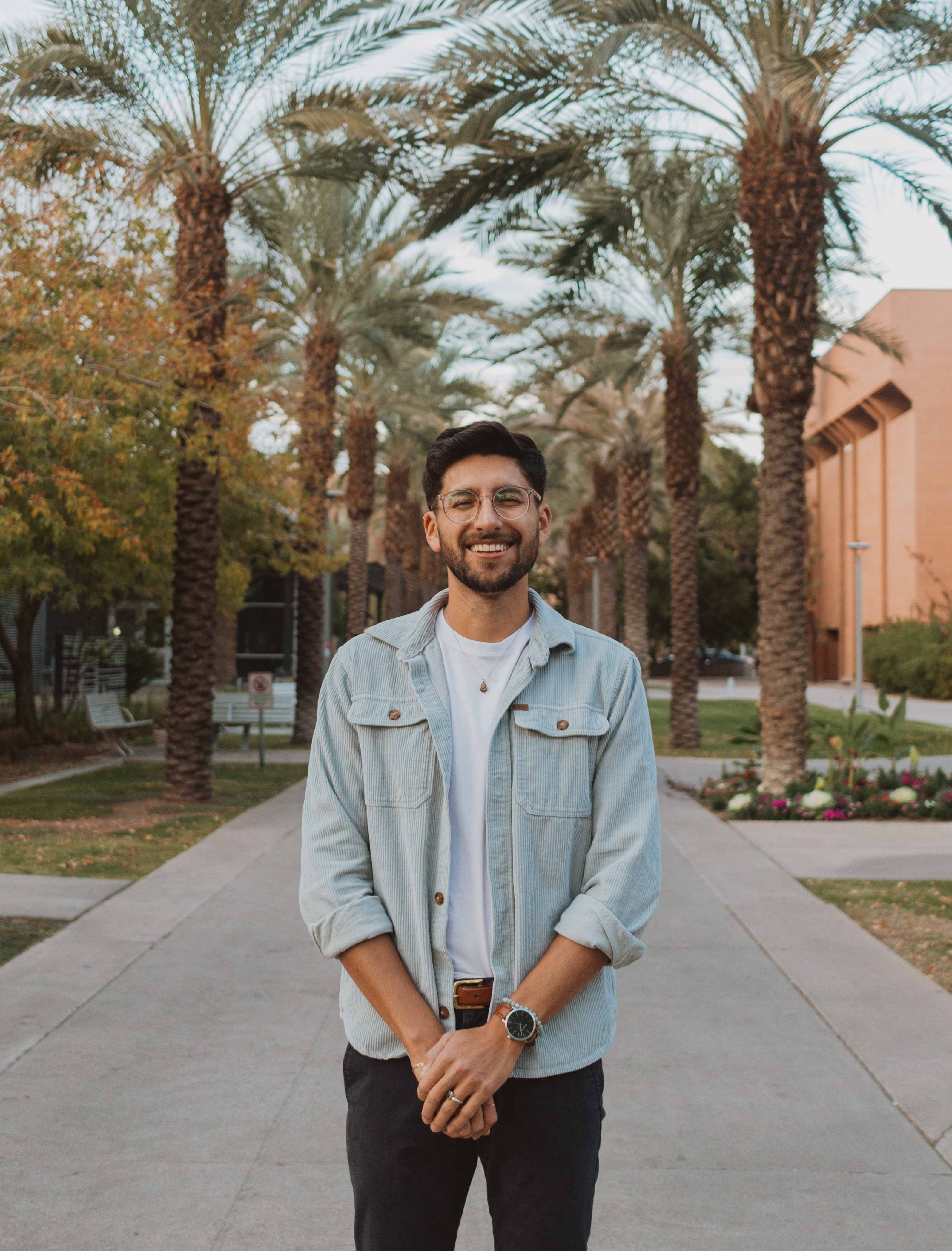
Dr. Rafael Ceja Ayala is a Presidential Postdoctoral Fellow at Arizona State University working with Dr. Malena Español. He completed his Ph.D. at Purdue University under the guidance of Dr. Isaac Harris, studying qualitative reconstruction methods for direct and inverse problems.
Dr. Ayala's research focuses on direct and inverse problems for partial differential equations, which play a key role in various physical applications such as medical imaging and detecting defects in complex structures. These problems are frequently found in engineering applications of non-destructive testing, where physical measurements on the surface of an object are used to infer the interior structure. The goal is to "invert" the solution operator for an (initial) boundary value problem.
Why did you apply for this fellowship?
I applied for the MGB-SIAM Early Career Fellowship because it aligns closely with my research interests and career aspirations. My work focuses on developing mathematical models and methods for solving inverse source and shape reconstruction problems, which have significant applications in geophysical exploration and medical imaging. This fellowship will provide a unique opportunity to deepen my expertise while fostering interdisciplinary collaborations.
What are you most looking forward to as an MGB-SIAM Early Career Fellow?
I am looking forward to the opportunity to collaborate with and learn from other fellows, mentors, and experts who are tackling challenging problems in the community. In addition, their experience offers a valuable mentor-mentee relationship that could serve as a road map for my mathematical career. Engaging with such a diverse and talented community will inspire new ideas and innovative approaches for addressing key challenges in my research. I am particularly excited about presenting my work at SIAM conferences and participating in workshops that promote knowledge exchange and interdisciplinary conversations.
Dr. Dewayne A. Dixon, Hampton University
Watch the video below to learn more about Dr. Dewayne A. Dixon and his motivations for applying to be an MGB-SIAM Early Career Fellow, as well as what he hopes to take away from the fellowship.
Dr. Kwassi Joseph Dzahini, Argonne National Laboratory
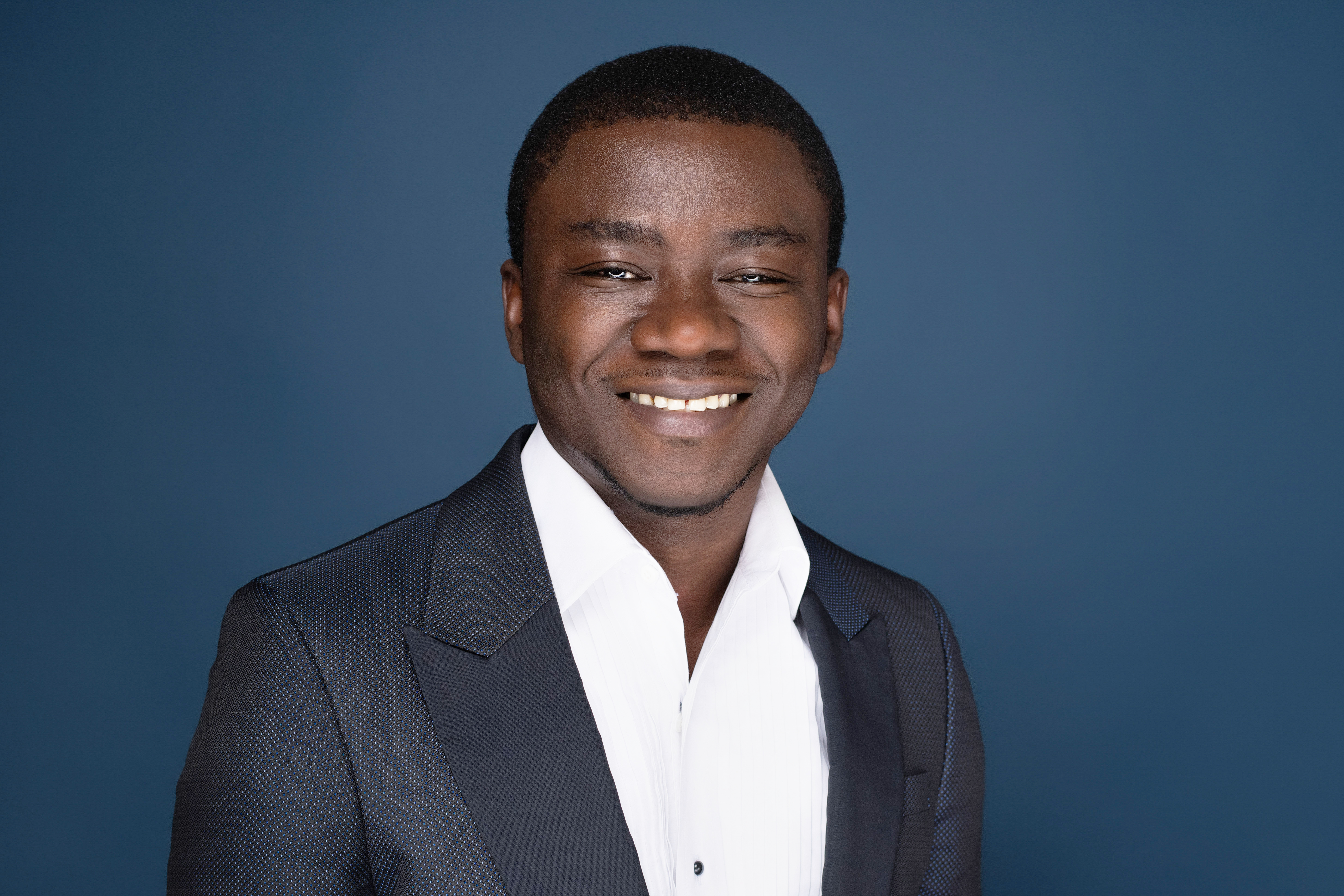
Dr. Kwassi Joseph Dzahini joined the Mathematics and Computer Science Division at Argonne National Laboratory in 2022 as a postdoctoral appointee. He earned his Ph.D. in applied mathematics from Polytechnique Montréal in Canada, where he also lectured courses in probability and statistics, as well as a master’s degree from Université Lille 1 in France, and a BSc in mathematics from Université de Lomé in his native Togo. His achievements include the best poster prize at the 2023 SIAM Conference on Computational Science and Engineering in The Netherlands.
Dr. Dzahini's research focuses on developing randomized algorithms for stochastic derivative-free optimization problems, with applications in large-scale systems, quantum computing, and machine learning. His work includes contributions to convergence theory, complexity analysis, and random matrix theory.
Why did you apply for this fellowship?
I applied for the MGB-SIAM Early Career Fellowship because it offers a unique opportunity to amplify my efforts in advancing diversity and equity within the mathematical sciences. My goal is to foster a community where underrepresented voices are not only included but celebrated. By leveraging SIAM's extensive network and resources, I aim to create avenues for mentorship, skill development, and visibility for researchers who might otherwise remain on the periphery of our field.
What are you most looking forward to as an MGB-SIAM Early Career Fellow?
I am looking forward to building meaningful connections with a community of like-minded individuals who share a passion for advancing diversity, equity, and inclusion in applied mathematics. I am excited about the opportunity to collaborate with fellows on initiatives that create lasting impact, such as organizing engaging minisymposia, mentoring early-career researchers, and fostering dialogues around representation in mathematics. I also see this fellowship as a platform to further integrate my research in optimization, random matrix theory, machine learning, and quantum computing with SIAM's broader mission, showcasing how these fields drive innovation.
Dr. Maurice S. Fabien, University of Wisconsin-Madison
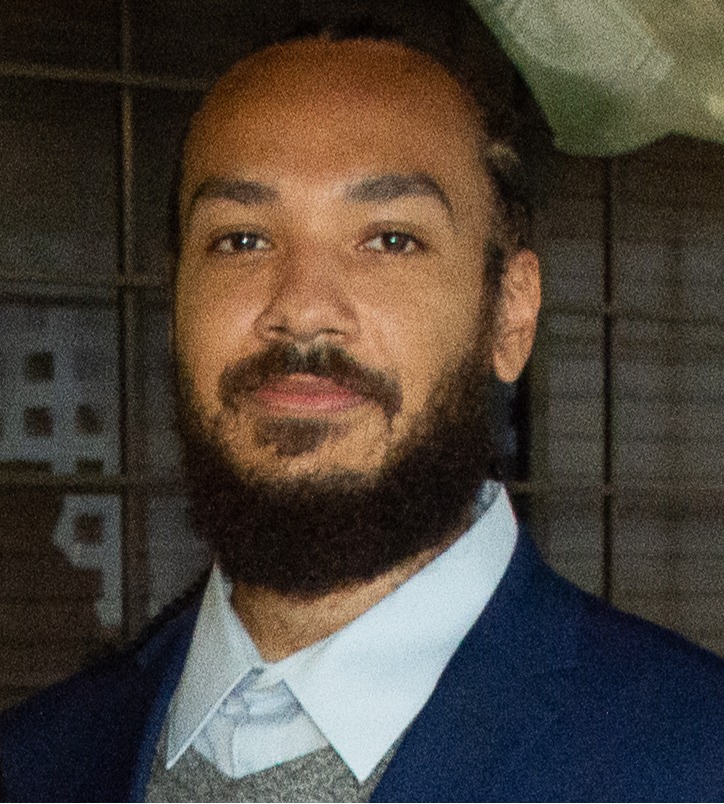
Dr. Maurice S. Fabien is an assistant professor of mathematics at the University of Wisconsin-Madison. He received his Ph.D. in computational and applied mathematics from Rice University (2019). From 2019 to 2022 he was a Presidential Postdoctoral Scholar and Prager assistant professor in the Division of Applied Mathematics at Brown University.
Dr. Fabien's research centers on advancing high-order numerical methods for solving partial differential equations, developing cutting-edge fast linear solvers, harnessing the power of high-performance parallel computing, and driving innovations in computational fluid dynamics applications.
Why did you apply for this fellowship?
I am deeply passionate about promoting the participation of underrepresented minorities in STEM fields. This fellowship provides a unique opportunity to actively engage with the SIAM community, contribute to its mission, and build meaningful connections at SIAM conferences, all while amplifying efforts to foster a more inclusive and diverse STEM ecosystem. The global pandemic created a significant rift in professional interactions, and this fellowship offers the perfect platform to reignite those connections and reengage with the vibrant SIAM community.
What are you most looking forward to as an MGB-SIAM Early Career Fellow?
As an MGB-SIAM Early Career Fellow, I am thrilled about the opportunity to connect with an inspiring community of researchers and professionals who share a deep passion for advancing applied mathematics. I am excited to immerse myself in the SIAM community, actively contribute to impactful collaborations, and amplify my research's reach while championing diversity and inclusion in STEM. This fellowship not only provides a dynamic platform for professional and personal growth but also opens doors to expanding my network, organizing engaging minisymposia, and fostering innovative ideas that drive meaningful change.
Dr. Nkechi Nnadi, Michigan State University
Watch the video below to learn more about Dr. Nkechi Nnadi and her motivations for applying to be an MGB-SIAM Early Career Fellow, as well as what she hopes to take away from the fellowship.
Dr. Arnaldo Rodriguez-Gonzalez, State University of New York at Buffalo
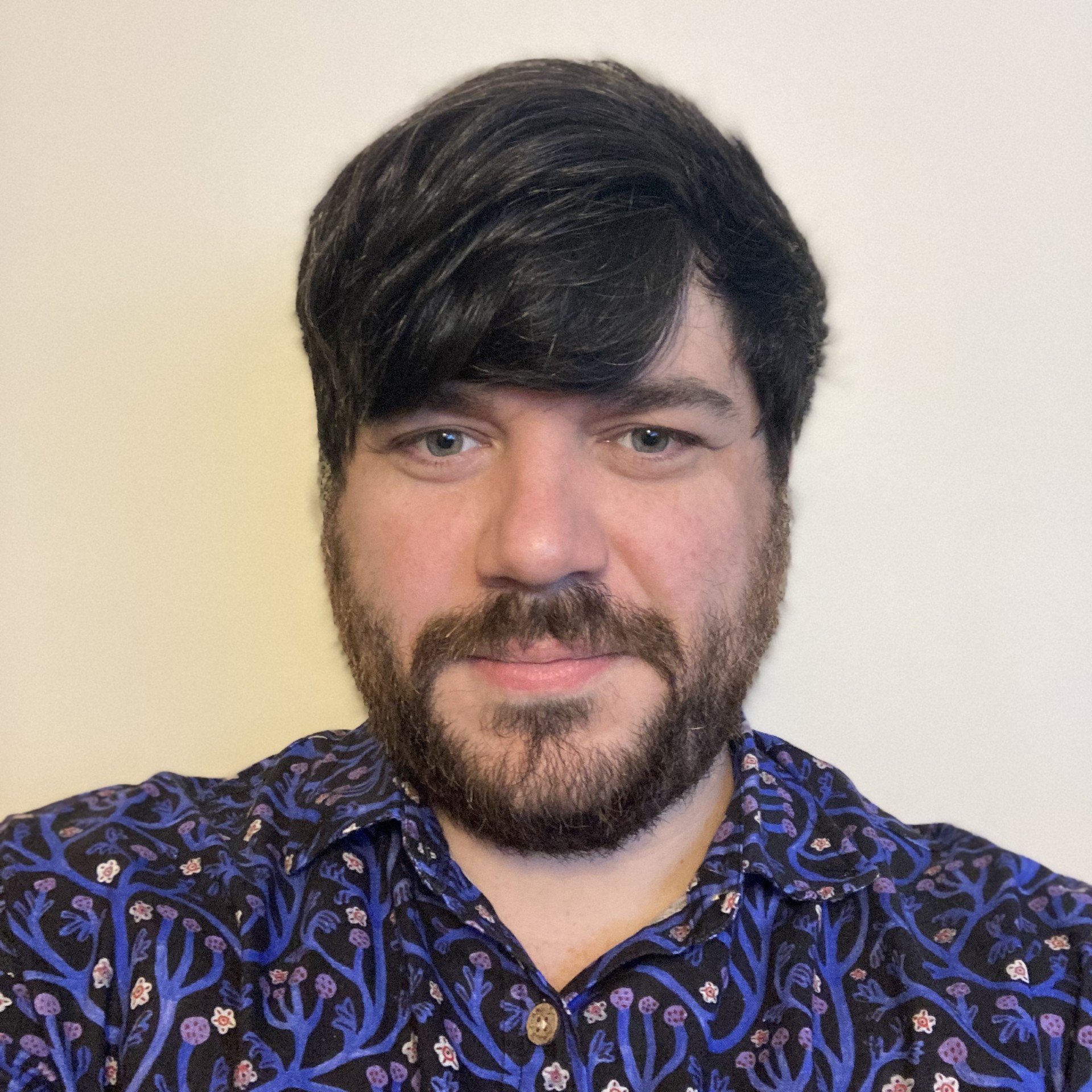
Dr. Arnaldo Rodriguez-Gonzalez is an assistant professor of teaching in the Department of Mechanical and Aerospace Engineering at the State University of New York at Buffalo. He received a B.S. in mechanical engineering from the University of Puerto Rico at Mayagüez, followed by a Ph.D. in theoretical and applied mechanics from Cornell University.
Dr. Rodriguez-Gonzalez’s current research interests lie in developing and analyzing models of transport phenomena using applied dynamical systems theory, with a particular focus on qualitative and symbolic methods. Applications of this work include developing coarse-grained models of microscale colloidal dynamics, as well as flow pattern analysis in droplets to ensure internal mixing behavior.
Why did you apply for this fellowship?
The MGB-SIAM Early Career Fellowship felt like the perfect opportunity to receive mentorship on the current state of applied mathematics research, a path for me to form community with other applied mathematicians like me, and a process by which I could receive meaningful support as I figure out my role in the world of applied mathematics.
What are you most looking forward to as an MGB-SIAM Early Career Fellow?
I am excited to build a community with fellow early-career applied mathematicians and to use the knowledge and connections gained from this fellowship to support aspiring mathematicians from underprivileged backgrounds as they navigate their own paths in the field.
Dr. María Isabel Sánchez Muñiz, City College of New York

Dr. María Isabel Sánchez-Muñiz is a Lecturer in the Department of Mathematics at The City College of New York (CCNY). She earned her Ph.D. in mathematics from the University of Minnesota, with research interests spanning dynamical systems, partial differential equations (PDE), probability, and topological data analysis (TDA). Her research applies mathematics to climate science and ecological systems, with her doctoral work developing an energy-based conceptual model for permafrost thawing. Her collaborative research on nitrogen-induced hysteresis in grassland biodiversity was published in The American Naturalist, reflecting her broader interest in modeling natural phenomena.
Why did you apply for this fellowship?
I applied for the MGB-SIAM Early Career Fellowship because it deeply resonates with my mission to bridge research excellence and educational equity. As a Latina mathematician at CCNY, a leading Hispanic-Serving Institution, I witness daily how diverse voices and perspectives enrich mathematical research and education. My research in climate modeling and ecological systems has taught me that solving complex global challenges requires diverse collaborative networks - no single perspective can address these issues alone.
My most rewarding experiences have come from mentoring students and helping them discover their own paths in mathematics. This fellowship represents an opportunity to embody the change I wish to see in mathematics - combining research innovation with meaningful mentorship to foster both scientific excellence and inclusive collaboration that enriches our field.
What are you most looking forward to as an MGB-SIAM Early Career Fellow?
I look forward to strengthening connections between theoretical and applied mathematics within the SIAM community, particularly in dynamical systems research related to climate science and ecological modeling. I’m excited to help organize minisymposia that bring together diverse perspectives on pressing environmental challenges, from permafrost thawing to ecosystem stability. Through this fellowship, I aim to develop collaborative projects that highlight how mathematical theory can drive practical solutions while also creating meaningful pathways for underrepresented students to engage in cutting-edge research.
I want to help build a SIAM community where students can bring their authentic selves to mathematics - where their diverse backgrounds and perspectives are not just welcomed but celebrated as vital contributions to solving real-world problems.
Dr. Sara Shashaani, North Carolina State University
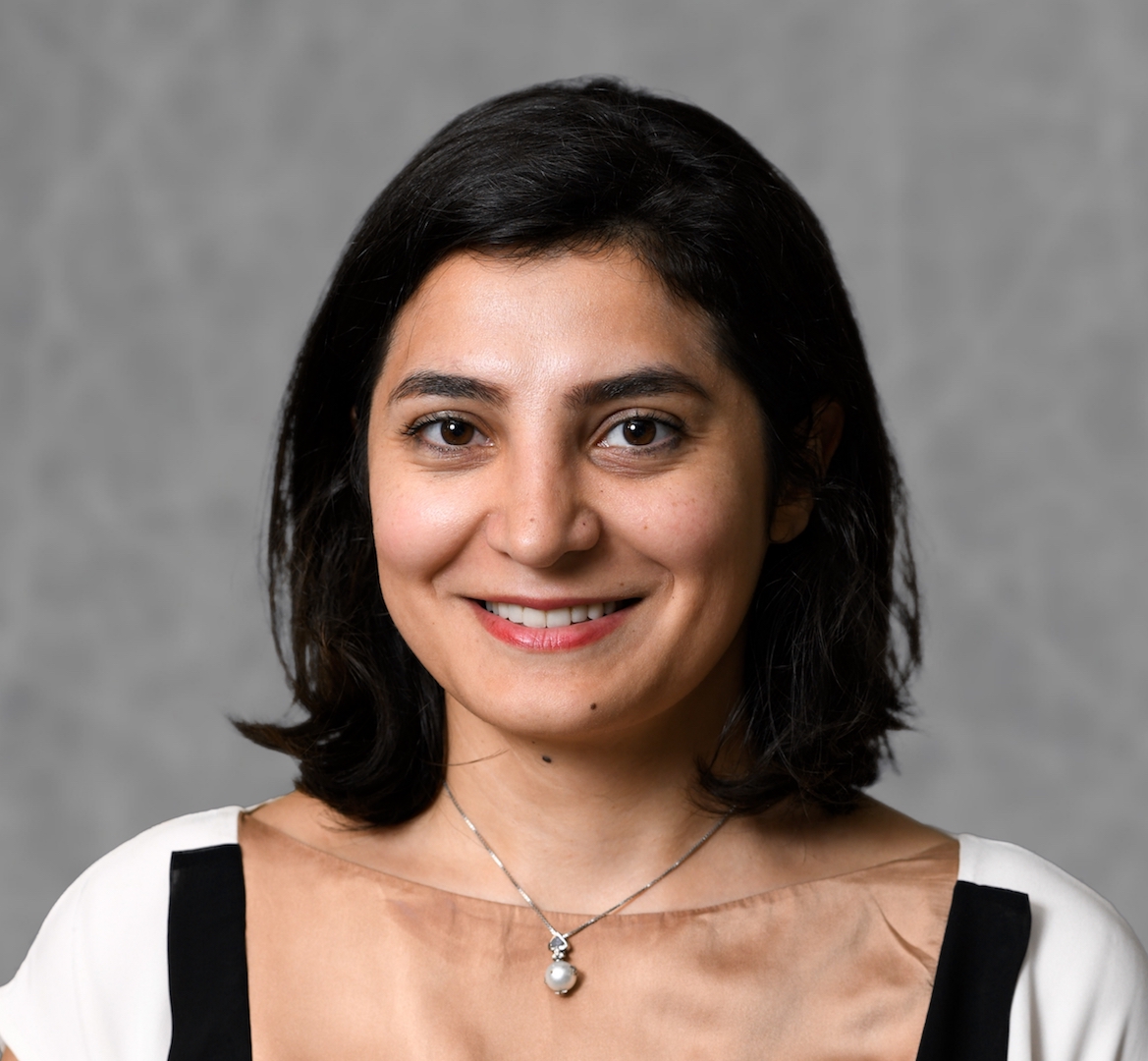
Dr. Sara Shashaani is an Assistant Professor in Industrial & Systems Engineering and Operations Research. She specializes in stochastic optimization and Monte Carlo simulation. Her dissertation research in the area of derivative-free simulation optimization awarded her a Ph.D. degree in industrial engineering from Purdue University in 2016.
Dr. Shashaani's research bridges the gap between theoretical mathematical programming and practical implementations, in particular in sampling strategies during optimization of black-box noisy functions. Besides research, her contributions to SimOpt---an open-source library for simulation optimization---have been aimed at providing accessible tools for researchers, practitioners, and educators.
Why did you apply for this fellowship?
I have not attended many SIAM conferences in the past, but this fellowship will provide the support I need to become more actively involved in the SIAM community. This involvement will help me stay at the forefront of emerging trends and innovations in my field.
What are you most looking forward to as an MGB-SIAM Early Career Fellow?
I look forward to attending the annual meetings and sharing my research with applied mathematicians from a wide range of disciplines. I am eager for the opportunity to offer a mini-tutorial on the SimOpt library, introducing this tool to the SIAM community and contributing to the advancement of computational methods for real-world problem-solving.
Related Reading

Stay Up-to-Date with Email Alerts
Sign up for our monthly newsletter and emails about other topics of your choosing.



